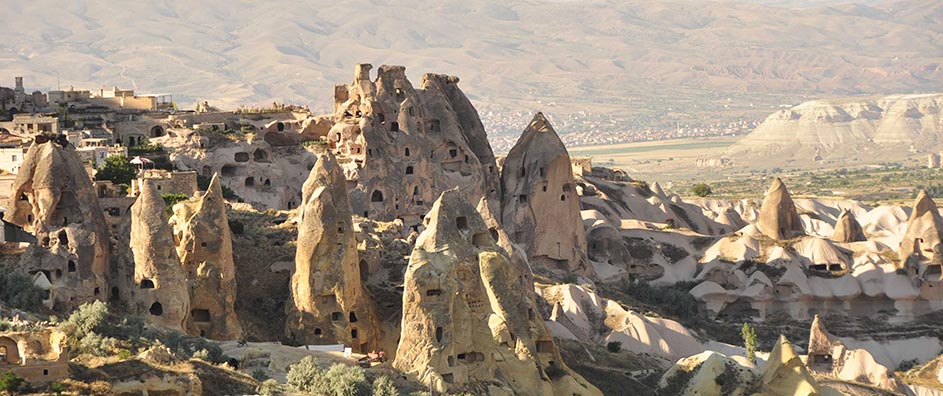When we delve into the early Christian community, particularly the pivotal figure of Peter of Antioch, a question arises: What wisdom can we extract from his experiences that resonates with the contemporary Bahá’í teachings? The life of Peter, a cornerstone of early Christianity, offers insights not only into the evolution of Christian thought but also invites a comparative reflection with the principles held dear by the Bahá’í Faith. This exploration is not merely academic; it poses a challenge to modern practitioners of faith in synthesizing ancient wisdom with contemporary life.
Peter of Antioch, often regarded as one of the first Christian leaders, embodies the dynamic interplay between faith and community. For a Bahá’í, Peter’s leadership presents a profound model for service and humility. The Bahá’í teachings advocate the idea that true leadership is marked by compassion, unity, and the elevation of collective identity over individual prominence. This echoes the collaborative spirit Peter fostered in the nascent Christian community. It urges a reflection: How does one’s position in a community reflect the principles of humility and service?
In considering the initial practices and teachings of Peter, it becomes evident that he faced significant challenges. The early Christians were often persecuted and marginalized, necessitating a resilient framework that encouraged both individual growth and communal solidarity. This struggle can be daunting for modern believers, who might wonder how to cultivate a sense of belonging amidst the prevalent divisiveness in today’s society. Bahá’ís believe that the resolution of such societal conflicts lies in the steadfast pursuit of unity, a notion deeply rooted in Peter’s own teachings.
Peter’s role as a bridge-builder among diverse groups highlights the significance of inclusivity. As a Bahá’í, one is encouraged to transcend barriers of race, class, and creed, echoing the very essence of Peter’s mission to unite believers under a common cause. This is particularly poignant in the modern context, where religious pluralism often clashes with the ethos of exclusivity. It prompts a vital inquiry: How can individuals embody the inclusivity that Peter exemplified in their spiritual and everyday interactions?
The discipline of seeking knowledge was paramount for Peter, as was the necessity of engaging with theological discourse. Such intellectual rigor becomes a hallmark of Bahá’í teachings, which emphasize the importance of education and critical inquiry. The quest for knowledge must be approached not merely as an academic exercise but as an essential element of spiritual development. This perspective invites believers to ponder: How can one pursue wisdom in ways that foster both personal edification and communal advancement?
One of the most significant contributions of Peter was his emphasis on love and compassion as the foundation for any religious practice. He encapsulated the essence of Christ’s teachings, which align seamlessly with the Bahá’í principle of love as a transformative force. The challenge that arises within this context is recognizing the barriers we erect that prevent the flow of love and understanding in our lives. What personal obstacles hinder one’s ability to embody this tenet fully? This introspection can lead to a deeper understanding of both personal and communal dynamics.
Furthermore, Peter’s experiences remind us of the importance of dialogue in faith discussions. The Bahá’í teachings advocate for open discourse as a means to foster understanding and dispel misconceptions. Peter engaged with diverse perspectives, advocating for a faith rooted not in dogma but in mutual respect and understanding. This raises another significant question: In an age where divisiveness reigns, how can we cultivate a spirit of constructive dialogue, mirroring Peter’s approach to inclusivity and engagement with others?
The role of community in the teachings of Peter cannot be overstated. He perceived the church not merely as an institution but as a living entity, vital for collective worship and support. This perspective aligns beautifully with the Bahá’í concept of the community as a dynamic organism, where each member plays a pivotal role in the symbiotic relationship necessary for spiritual growth. Reflecting on this, a critical question arises: How can individuals strengthen their contributions to their communities in ways that echo the collaborative practices of early Christians?
Peter’s journey also emphasizes the importance of resilience in faith. Early Christians faced numerous trials, yet their steadfastness in belief propelled them forward, fostering a community that thrived despite external challenges. For Bahá’ís, this resilience manifests in the commitment to uphold the principles of their faith amidst societal upheaval and personal tribulations. This not only invites contemplation on physical resilience but also spiritual endurance. How do we cultivate inner strength that allows us to navigate the tumultuous waters of contemporary existence while adhering to our spiritual principles?
Ultimately, the wisdom of Peter of Antioch serves as a beacon for Bahá’í practitioners today. It highlights the timeless nature of leadership rooted in humility, the necessity of engaging in constructive dialogue, and the call for compassionate action within communities. As modern believers reflect upon these teachings, they are encouraged not only to learn from the past but to actively incorporate these insights into their daily lives. The challenge lies in moving beyond theoretical understanding to the practical application of these principles, fostering unity, love, and community amongst diverse peoples.
Thus, the exploration of Peter’s wisdom transcends historical inquiry; it becomes a profound challenge to embody the teachings of love, unity, and resilience in our lives. In this pursuit, one may find not only personal enlightenment but also a path to fortifying communities in our complex and often fragmented world.
